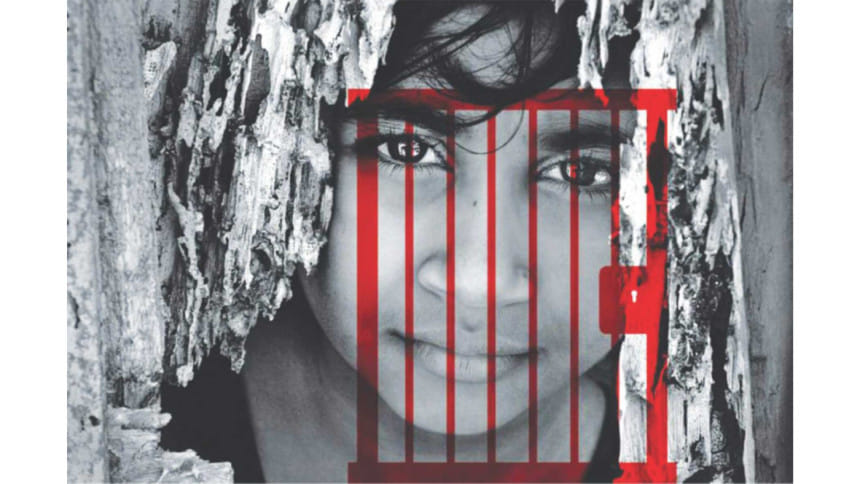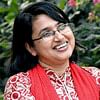We must do better to protect children with disabilities

In the first eight months of 2021, at least 79 girls with disabilities have been subjected to rape in the country, according to a recent report by the National Girl Child Advocacy Forum Bangladesh. There is a culture of impunity regarding sexual violence faced by children, but pursuing justice becomes even more challenging in case of girls with disabilities—especially if they have intellectual, speech, hearing, and psycho-social disabilities.
Child sexual violence, abuse, and exploitation happen in many ways, which can range from inappropriate touching to rape. Children are abused in all settings: homes, schools, playgrounds, workplaces, etc. This is a serious violation of children's rights and has a long-term negative impact on their lives. Most of the cases of child sexual abuse remain unreported, and the likelihood of the abuse being unreported is higher in the case of children with disabilities. There is chronic inaccessibility and structural discrimination that children with disabilities face within the legal system in Bangladesh. Therefore, survivors and their families usually refrain from speaking out about the violence against them. This makes children with disabilities even more vulnerable. So, it could be safely said that the number cited above reflects only the tip of the iceberg.
According to "Out from the Shadows: Sexual Violence against Children with Disabilities," a report jointly prepared by Save the Children and Handicap International, children with disabilities are at a greater risk of experiencing physical and sexual violence than children without disabilities. They may be hidden in communities due to stigma and discrimination, and excluded from schools and other educational opportunities. Adolescent girls and boys with disabilities (particularly those with intellectual disabilities) are usually excluded from activities that could increase their knowledge about violence, sex, and healthy relationships, as well as from peer networks that might protect them from violence.
As a result of the isolation, children with disabilities are perceived as an easy target for violence. In many cases, parents of children with disabilities are unaware of the risks facing them, and cannot take actions to protect their children. Perpetrators could be a relative or anyone on whom the child is dependent, which makes it very difficult to address the issue.
Children with disabilities usually find it hard to move away from risky situations or call for help. Often they don't know if a crime has happened to them, or can't tell other people what happened. In most cases, police, legal, and medical professionals do not have the capacity and sensitivity to communicate with children with disabilities in an effective way, and cannot provide the required support.
In Bangladesh, children with different types of disabilities face different challenges. A survivor with speech and hearing impairment cannot give testimony to the court directly, as there are no lawyers or judges who know sign language. Courts require interpreters in such cases. But there are only around 10 of them in the country, and most of them are based in Dhaka. In case of survivors with psychosocial disability, the police are not willing to document such cases because the survivors cannot prove the incident. Those who have multi-sensory impairment are completely unable to give testimony.
Perpetrators should be brought to justice through speedy trials. Social and structural discrimination that prevents children from accessing services should be addressed. We should guarantee equal access to education and other opportunities that decrease the isolation of children with disabilities. There is a need for a change in public attitude regarding children with disabilities, which will contribute to creating an environment where they feel included. It is important to prohibit all forms of discrimination that may hinder access to justice as well as medical, legal, psychological, and social services. For example, legal provisions that automatically prohibit children with certain disabilities from being recognised as competent witnesses must be changed. If the burden of proof could be shifted to the accused perpetrator from the victim, it may be easier to get justice.
There should be investment in high-quality, free services that prevent and respond to sexual violence against children with disabilities. We must ensure that the children get the support they need. This includes medical care, support to cope and keep safe, someone to assist them to understand information or use sign language, advice to help them get a lawyer for free, and support to speak in court in a way that is safe for them.
There should be capacity building efforts for the police, judges and court staff, social workers, doctors, nurses, and other health staff so that they could provide adequate support to the children with disabilities with sensitivity. Infrastructures and services should be designed in a way that all children with disabilities could use them easily.
Children with disabilities should be consulted to ensure services are appropriate and accessible to them. They should have access to information on their rights, which will help them in identifying, preventing, and acting upon violence against them. The laws related to rape and disability rights must be disseminated to them in accessible formats (through braille, sign language, etc). Parental awareness should be developed so that they can prevent and detect the early signs of sexual violence faced by their children with disabilities. This will be helpful in taking measures to protect them quickly.
"It makes me so angry when I see the man who raped my 13-year-old daughter with disabilities proudly roaming around the neighbourhood, saying, 'What's so wrong with raping a retard? She's a reject anyway!'"—this remark by a frustrated father of a girl with intellectual and physical disabilities expresses the reality faced by the children with disabilities. Due to the additional vulnerabilities faced by them, we have more responsibilities to do all we can to protect them from sexual violence. The government, civil society, service providers, media, parents, and community members should play their roles properly to ensure that children with disabilities are protected from sexual violence. Let's make them a priority and always consider their best interest.
Laila Khondkar is an international development worker.

 For all latest news, follow The Daily Star's Google News channel.
For all latest news, follow The Daily Star's Google News channel. 



Comments